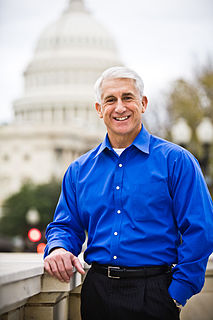A Quote by Maurice Levy
If you look at the population of the world you have roughly 15% that will always be resisting advertising. Fifteen percent of something which has not yet been reached.
Related Quotes
The second reason why we haven't observed the growing gap is that our historical and social science analyses have concentrated on what has been happening within the 'middle classes' - that is, to that ten to fifteen percent of the population of the world-economy who consumed more surplus than they themselves produced. Within this sector there really has been a relatively dramatic flattening of the curve between the very top (less than one percent of the total population) and the truly 'middle' segments, or cadres (the rest of the ten to fifteen percent).
Economists often talk about the 80/20 Principle, which is the idea that in any situation roughly 80 percent of the “work” will be done by 20 percent of the participants. In most societies, 20 percent of criminals commit 80 percent of crimes. Twenty percent of motorists cause 80 percent of all accidents. Twenty percent of beer drinkers drink 80 percent of all beer. When it comes to epidemics, though, this disproportionality becomes even more extreme: a tiny percentage of people do the majority of the work.
The US is a country [in which] eighty percent of the population thinks the Bible was written by god. About half think every word is literally true. So it's had to appeal to that - and to the nativist population, the people that are frightened, have always been... It's a very frightened country and that's increasing now with the recognition that the white population is going to be a minority pretty soon, "they've taken our country from us."
Fifty percent of the world's population lives in cities. In a couple of decades, 70 percent of the world's population will be living in cities. Cities are where the problem is. Cities are where the solution is, where creativity exists to address the challenges and where they have most impact. This is why, in 2005, the C40 was founded, an organization of cities that address climate change. It started with 18 cities; now it's 91. Cities simply are the key to saving the planet.
The Hispanic population grew by 4.7 percent last year, while blacks expanded by 1.5 percent and whites by a paltry 0.3 percent. Hispanics cast 6 percent of the vote in 1990 and 12 percent in 2000. If their numbers expand at the current pace, they will be up to 18 percent in 2010 and 24 percent in 2020. With one-third of Hispanics voting Republican, they are the jump ball in American politics. As this vote goes, so goes the future.



































